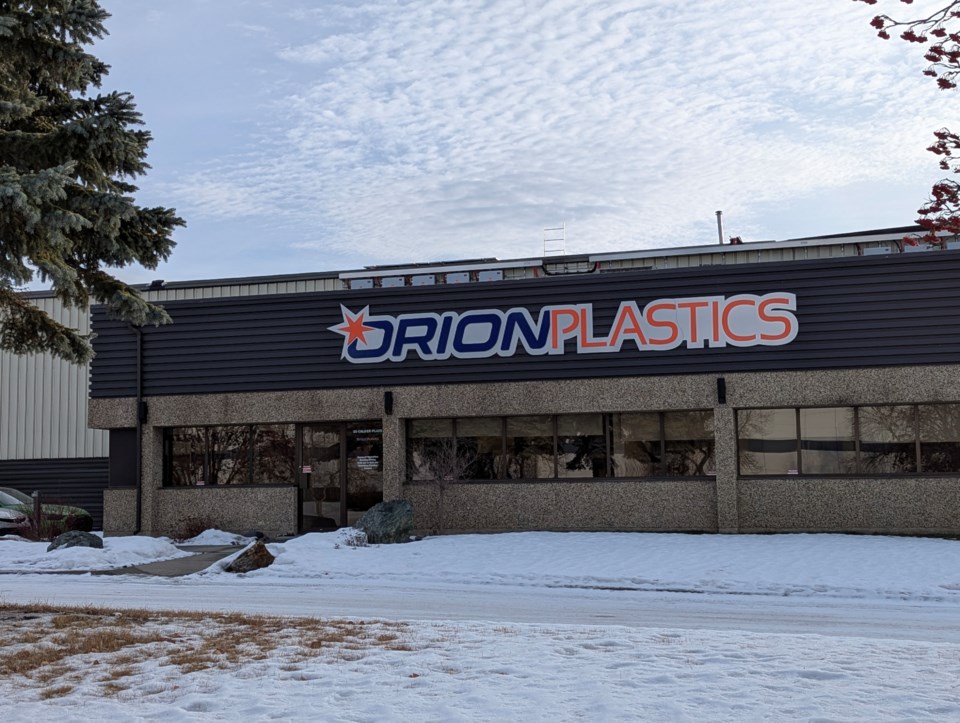The threat of a possible trade war between the United States and Canada has St. Albert-area manufacturing businesses on edge.
"Right now we're in a complete state of uncertainty," said former chair of the St. Albert and District Chamber of Commerce Rosanna Fischer.
Newly inaugurated U.S. President Donald Trump has threatened to slap a flat 25 per cent tariff on imports from Canada and Mexico, which has local manufacturing businesses worried about how it will impact them.
Stan Dean is general manager of Milepost Manufacturing, a company in Sturgeon County that primarily manufactures steel and precast concrete products and environmental containment products to the oil and gas, mining and agriculture industries. They work with companies in Canada that ship to the United States. He says if implemented, a 25 per cent tariff will eventually cut its way into his business.
"If there's a 25 per cent tariff slapped on their product, then they'll be less competitive in the U.S. market, thus they're going to cut their margins to maintain market share," he said. "They're going to have less to ship there. If they have less to ship there or if they cut their margins, that means that the work that I do for these companies will be less because they'll have less profit."
Orion Plastics CEO Stephen Moore would also see a negative impact on his business, which manufactures extruded "plastic sheets that gets vacuum formed into automobile parts, RV components, parts for heavy truck, marine, mining, and a number of other industries." They operate in St. Albert.
"If tariffs are implemented it would require a commensurate increase in prices," he said. "You know that would result in a reduction in demand. If there is a reduction in demand because of an increase in prices due to tariffs that would reduce throughput at our manufacturing plant here and we'd have to respond by adjusting our workforce as needed."
He said he had partners who are being proactive "across the board."
"I'm sure many businesses across Canada and the United States are looking at alternate supply chains just to be prepared for this," he said.
Fischer also wondered about the compounding effects a retaliatory tariff imposed on the U.S. by Canada.
"What happens if we start the retaliatory tariffs just on something like steel and orange juice?" she said. "How is that going to look? And is that going to cut back production? And how many jobs are going to be lost? When I heard 150,000 families could lose jobs because of this, that scares us all around. The chamber is very concerned."
Fischer was referencing an interview Scott Crockatt, vice-president of the Business Council of Alberta, did with CTV.
Dean said his work would be significantly impacted by any retaliatory tariffs that could be introduced. In 2018, Canada imposed a retaliatory tariff on imports of U.S. steel and aluminum products, in response to a 25 and 10 per cent tariff the United States implemented on Canadian steel and aluminum exports respectively.
"Those prices are passed onto the people that use them, like myself," he said. "And so our bottom line becomes less, which gets passed onto the consumer who has to pay more. So if they have to pay more, they're going to do less. It's a domino effect."
Shelly Nichol, executive director of the St. Albert and District Chamber of Commerce, urged calm, noting the tariffs haven't been put in place yet.
"I think we need to be very aware that sometimes what people say and what people do, and what they're able to do is not the same," Nichol said
Nichol said they've seen some reactions from local businesses and what the potential tariffs could mean for their production and business going forward.
"Maybe their goal was to move into the American market and so now they're moving away from that and focusing on, you know, how do we get into the Asian market? How do we look at Africa? You know, there's different places that we can maybe focus on while this tariff situation works its way through the system," she said.
"People are reacting and trying to be proactive about it," she said. "It's not knowing what is going to happen that makes businesses very uncomfortable. I think the uncertainty right now has worse effects than when the tariff comes in."
Moore said Orion Plastics is looking at domestic markets, but added "a lot of those potential customers, they export their parts into the United States as well. So I doubt that it would be possible to backfill 100 per cent of the business just because the United States economy is an order of magnitude larger than ours."
As for that feeling of uncertainty, or if production or his workforce could see cuts, Dean said there is always that worry, but that he's "going to wait and see what happens here."
"We've survived it before, we'll survive it again," he said.




